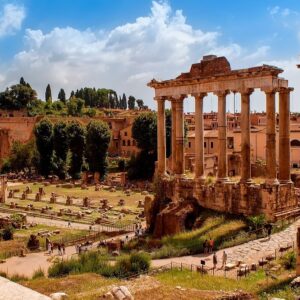A republic is a form of government. The origin of the word is the Latin phrase Res Publica. It means “the public thing” or “public affair.” The Greek word Politeia is also related. Roman scholars, including Cicero, see it as a synonym to Res Publica. Of course, the concept of a republic relates to these two ancient phrases. The public owns the state rather than a monarch – the main difference to a monarchy.
In a monarchy, the right to rule is hereditary – one family passes power from generation to generation. The fundamental principle of a republic is that citizens elect their rulers. The rulers reign the state through the right granted by the citizens. Hence, the head of state is a president, not a monarch.
For the republic to truly work, democracy is essential. Democracy allows free elections. Hence, people can freely elect their rulers. However, not every republic is a democracy.

For example, the Soviet Union consisted of several republics but was not democratic. That means that it can also be an autocratic regime. The same goes for China of today. Similarly, not every democracy is a republic. Spain or the UK are both democratic monarchies!
Republics in practice
A republic can use either a presidential, semi-presidential, or parliamentary system! The ideology supporting this form of government as the best option is called Republicanism.
The first example is the Res Publica Romana (the Roman Republic). It lasted from the year 509 BC when the last Roman king fled. In 27 BC, the first Roman Emperor, Augustus, dissolved the republic.
For the next several hundred years, monarchies shadowed republics. There were some exceptions, for example, in Iceland, India, or Venice. But, after the USA declared independence in 1776, things started to change. From the beginning of the 19th century, more and more countries became republics. Today, it is the most common form of government.
